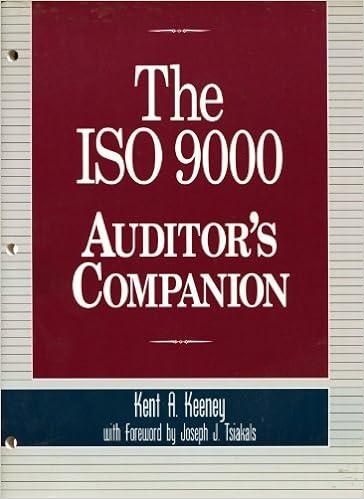Answered step by step
Verified Expert Solution
Question
1 Approved Answer
Kindly answer all questions 5. The Weibull distribution is an example of a Generalized Extreme Value distribution and can be used for modelling nearest-neighbour distances


Kindly answer all questions
5. The Weibull distribution is an example of a Generalized Extreme Value distribution and can be used for modelling nearest-neighbour distances between particles of ideal gases. Let X1, X2, ..., In be an i.i.d. sample from a Weibull distribution with shape parameter k > 0) and transformed scale parameter 0 > 0, such that its pdf (in Bayesian notation) is k k-1 f(x|0, k) rk/ e >0. (4) e Suppose that k is known and O is the unknown parameter of interest. (a) Show that the Weibull distribution (4) with k known forms a one-parameter exponential family. Identify the sufficient statistic t(2), canonical parameter n(@) and normalizing func- tion c(0) for this family. [2 marks] (b) Using your results from part (a), or otherwise, construct a conjugate family of prior distri- butions for e. [2 marks] (c) Show that the subsequent posterior distribution for 0 given the data x = (x1, X2, ... , Zn) is of the form Lizim + exp f(@x) 0 are freely-chosen hyperparameters, and identify this distribution. [2 marks] (d) It is given to you that 0-a-1e-b/de = T(a) ba for any a, b > 0. Using this result, or otherwise, show that the posterior mean is given by 0 E(@x) Li-x + 1 a +n - 1 [2 marks] (e) What is the effect of the hyperparameters a and on the posterior mean like? Give an interpretation using the concept of equivalent prior observations. [1 mark] (f) Using your result from (e), or otherwise, describe how you would set the hyperparameter values a, 1 to reflect minimal prior knowledge of the underlying process. Is your subsequent prior a proper or improper distribution? [2 marks] A sample of n = 12 nearest-neighbour distances (x109 m) between nitrogen particles in a greenhouse gave the following measurements: x = [4.42, 1.36, 4.61, 2.17, 4.98, 4.72, 5.20, 2.56, 6.41, 4.78, 2.86, 2.82] Because nitrogen is (approximately) an ideal gas, we can follow Chandreshekhar (1943)2 and model these inter-particle distances using a Weibull distribution with k = 3. (g) Using your results from the previous parts, or otherwise, construct a posterior 95% credible interval for the scale parameter 0 for nitrogen particles in this greenhouse. [3 marks] 5. The Weibull distribution is an example of a Generalized Extreme Value distribution and can be used for modelling nearest-neighbour distances between particles of ideal gases. Let X1, X2, ..., In be an i.i.d. sample from a Weibull distribution with shape parameter k > 0) and transformed scale parameter 0 > 0, such that its pdf (in Bayesian notation) is k k-1 f(x|0, k) rk/ e >0. (4) e Suppose that k is known and O is the unknown parameter of interest. (a) Show that the Weibull distribution (4) with k known forms a one-parameter exponential family. Identify the sufficient statistic t(2), canonical parameter n(@) and normalizing func- tion c(0) for this family. [2 marks] (b) Using your results from part (a), or otherwise, construct a conjugate family of prior distri- butions for e. [2 marks] (c) Show that the subsequent posterior distribution for 0 given the data x = (x1, X2, ... , Zn) is of the form Lizim + exp f(@x) 0 are freely-chosen hyperparameters, and identify this distribution. [2 marks] (d) It is given to you that 0-a-1e-b/de = T(a) ba for any a, b > 0. Using this result, or otherwise, show that the posterior mean is given by 0 E(@x) Li-x + 1 a +n - 1 [2 marks] (e) What is the effect of the hyperparameters a and on the posterior mean like? Give an interpretation using the concept of equivalent prior observations. [1 mark] (f) Using your result from (e), or otherwise, describe how you would set the hyperparameter values a, 1 to reflect minimal prior knowledge of the underlying process. Is your subsequent prior a proper or improper distribution? [2 marks] A sample of n = 12 nearest-neighbour distances (x109 m) between nitrogen particles in a greenhouse gave the following measurements: x = [4.42, 1.36, 4.61, 2.17, 4.98, 4.72, 5.20, 2.56, 6.41, 4.78, 2.86, 2.82] Because nitrogen is (approximately) an ideal gas, we can follow Chandreshekhar (1943)2 and model these inter-particle distances using a Weibull distribution with k = 3. (g) Using your results from the previous parts, or otherwise, construct a posterior 95% credible interval for the scale parameter 0 for nitrogen particles in this greenhouse. [3 marks]Step by Step Solution
There are 3 Steps involved in it
Step: 1

Get Instant Access to Expert-Tailored Solutions
See step-by-step solutions with expert insights and AI powered tools for academic success
Step: 2

Step: 3

Ace Your Homework with AI
Get the answers you need in no time with our AI-driven, step-by-step assistance
Get Started


